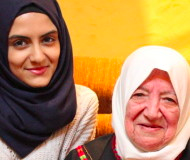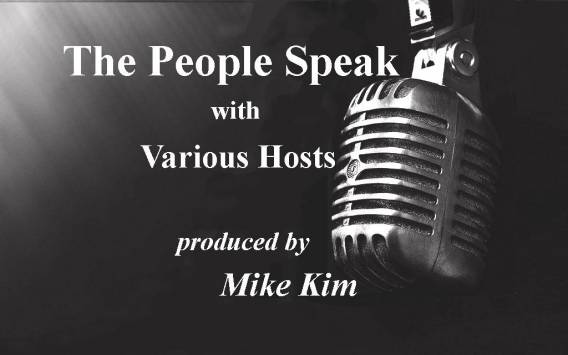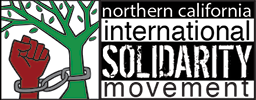The People Speak

The People Speak has evolved over the years with many great guests who have been interviewed by some very fine hosts.
We are a 55 minute show airing every other Sunday between 5-6pm Pacific/8-9pm Eastern. The show features a guest interview from any number of realms of interest (entertainment, science, philosophy, healing, spirituality, activism, politics, literature, etc.).
The guests share their stories, lives, strategies, books, philosophy, films, music, or whatever it is they use as a vehicle for making a difference for the better.
The radio show name, The People Speak, is based on the idea of allowing our audience - the People - a chance to interact with the guests during the hour, and we take phone or text questions from them during the interview.
Past guests include such notables as Nobel Peace Laureate Archbishop Desmond Tutu, the late Howard Zinn, Nobel Laureates Mairead Maguire, Shirin Ebadi, Kathryn Najimy, Oliver Stone, Jesse Ventura, Richard Belzer, Cynthia McKinney, Cindy Sheehan, Scott Horton, Joan Jett, Willie Nelson, George Galloway, Roseanne Barr, Ed Asner, Chevy Chase, as well as various reps from Amnesty International, UN World Food Programme, and many others.
Guest, Amena El-Ashkar

Amena Ashkar, the granddaughter and great granddaughter of other Nakba survivors, who has known no other home than refugee camps. Amena is here with Mariam, now 86 years old and respectfully known as Umm Akram (mother of Akram), has spent the last 68 years in crowded, makeshift refugee camps in Lebanon. She has raised three generations in the same camps, all waiting to return to their home in Palestine. She has lived through five Israeli invasions of Lebanon, as well as the 1976 Tel al-Zaatar camp massacre that killed more than 2000 of the refugees there.
On May 14, 1948, as Zionist leader David Ben Gurion was proclaiming a Jewish state in Palestine, his heavily armed troops seized the ancient Palestinian Arab town of al-Zeeb and drove out most of the inhabitants. 18-year-old Mariam Fathallah was one of them. She and her young husband Mohammed Atayah and their families were forced to flee to Lebanon, along with most of the town. By the end of the year, the 4,000 year old community had been leveled to the ground. More than half the Arab Palestinians in Palestine were killed or expelled and more than half of the cities, towns and villages of Palestine were made to disappear, a crime that Palestinians call al-Nakba (the Catastrophe).
Amena and Umm Akram have a different message from other Palestinians. They are among six million Palestinians not living in Palestine – more than those who are. They are citizens of no government at all, not even the Palestinian Authority. They are not living under Israeli occupation. Israel does not allow them to visit their homes, much less live there. Amena has never met an Israeli, and Umm Akram not since 1948. As exiles, they have a different perspective from Palestinians in Jerusalem, the West Bank, Gaza and the part of Palestine that became Israel.










